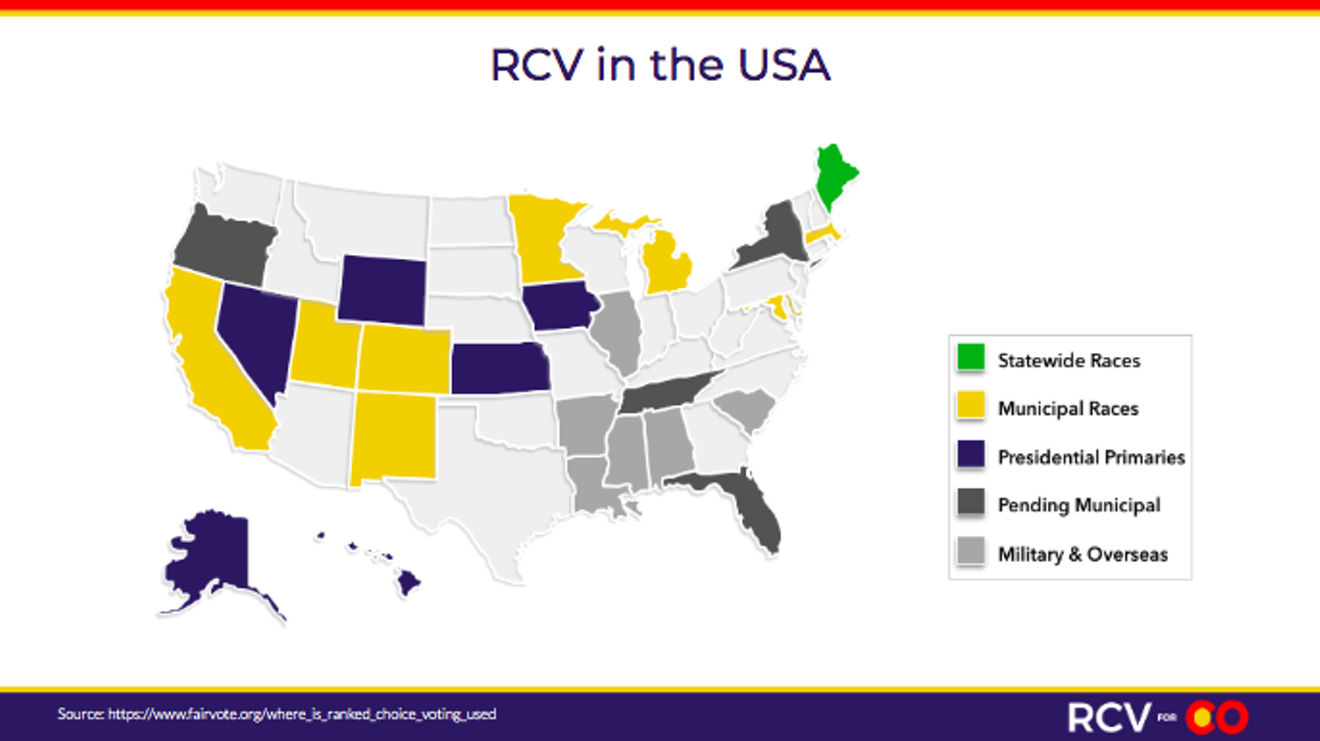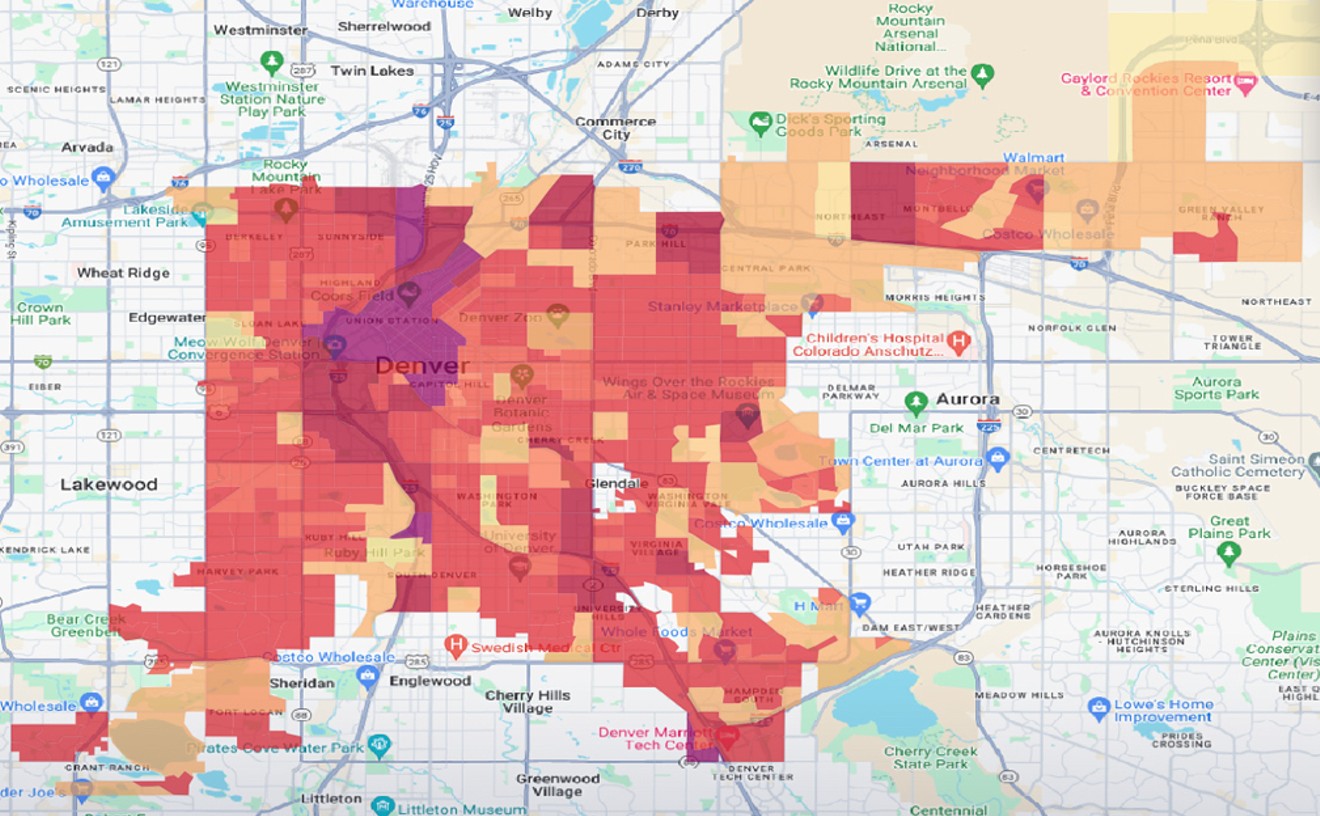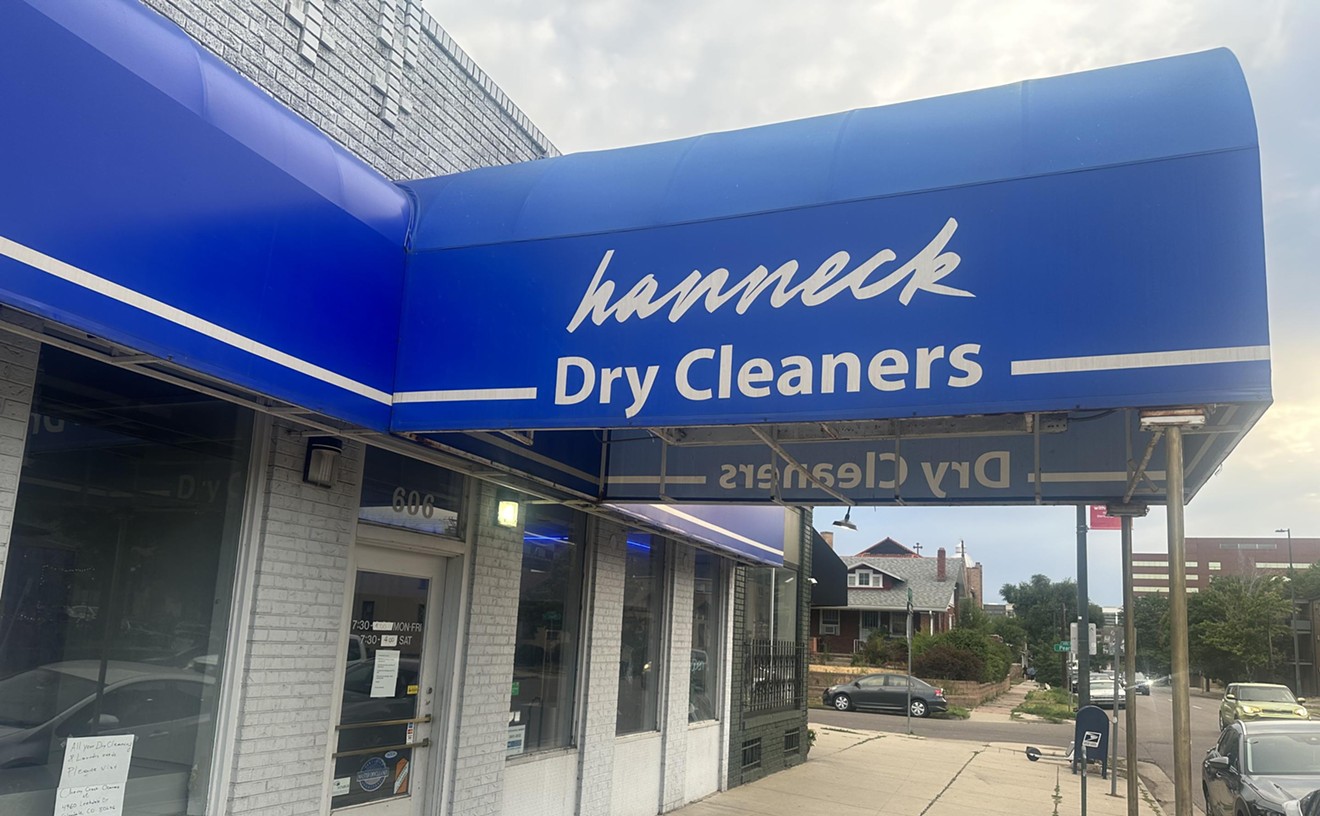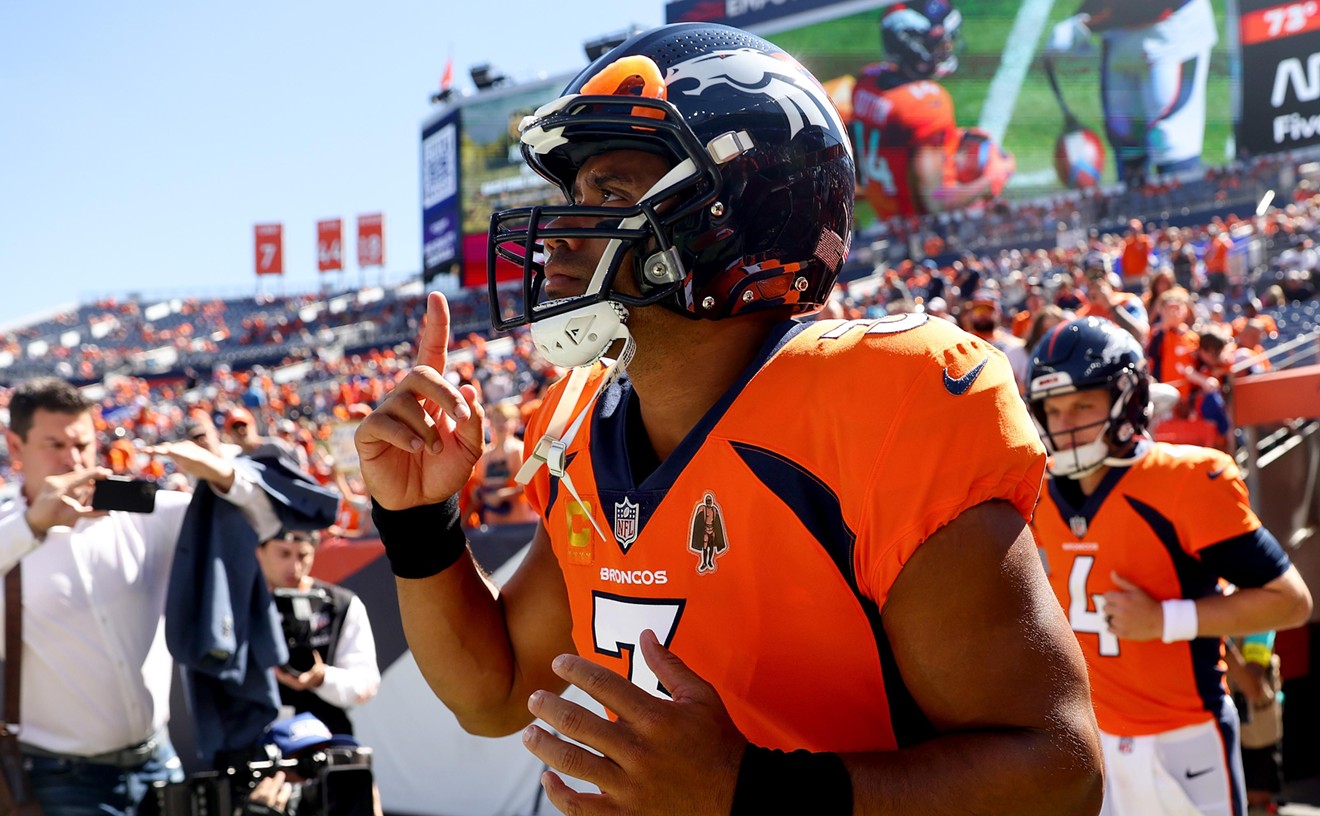The Denver metro area has seen its fair share of discontent over the way elections operate. In May, almost half of the races in the Denver general municipal election failed to produce a winner with more than 50 percent of the vote in the first round, resulting in seven costly, lengthy and sometimes nasty runoff elections. Aurora's future is still unclear as county clerks count several hundred ballots with signature discrepancies. Candidates require only a plurality to win, and so Mike Coffman is unofficially poised to win the race with 35.7 percent of the vote, just 281 votes ahead of runner-up Omar Montgomery, who has yet to concede.
Voters in New York City just approved a ballot measure that could ease both city's election ills, though some worry it could create its own. Voters chose to overhaul the plurality-based election system that most city, county, state and national races use, replacing it with unconventional method called “ranked choice voting.” Headlines since have touted it as “a revolutionary voting system,” an anti-corruption measure, and a “huge win for democracy.”
But on paper, ranked choice voting (also known as instant runoff voting) is not an immediately radical change. Instead of choosing just one favorite, voters rank their preferences from first to last. Everyone's first choices are counted first, and if one candidate gets a majority of the first-choice votes, the counting ends. If not, the system goes into an "instant runoff": The last-place candidate is eliminated, and votes of those who ranked that candidate first are transferred to their second-choice candidates. That process continues until one candidate emerges with a majority of votes.
The nonprofit political committee Ranked Choice Voting for Colorado (RCV Colorado) is pushing municipalities across the state to adopt it, and it's got its eye specifically on Denver, especially now that New York City has paved the way for large cities. County Clerk Paul Lopez says ranked choice voting is one of several measures that his election modernization committee is considering; however, the clerk’s office has been hesitant to throw its full support behind it just yet, and it would require voters to approve a change to the city charter. The soonest it could be implemented is 2023.
Linda Templin, the executive director of RCV Colorado, says she turned to ranked choice voting after the "acrimonious and awful" 2016 presidential election. The organization she leads has since grown, funded by small donations.
"Candidates have to be more issue-focused," in ranked choice voting, Templin says. "If you want to win, you need to reach out to the other voters and say, 'Rank me number 1, but if not, rank me number 2.' You can’t just campaign to your base."
Templin says the system would have an overall moderating effect. "An extremist doesn’t win in ranked choice, because an extremist is nobody’s backup plan." It could also ease the risk of "spoiler" candidates splitting the vote and ultimately hurting the candidate their supporters would have chosen, since second-choice votes for candidates who are eliminated still count, she says.
Although New York City is the biggest city so far to implement ranked choice voting, it has been used in Australia for the past century. Maine implemented it in 2018 for all statewide and presidential races. Notable cities that use it for their municipal elections include Berkeley, Memphis, Minneapolis, San Francisco, St. Paul and Santa Fe.
Colorado has already made some headway with the system, with a few stumbles along the way. Telluride adopted it in 2008, and the Secretary of State's Office modeled rules for using it based on that town's experience. Aspen City Council adopted it in 2009, but voters repealed it by referendum after a nine-way 2009 city council race. Templin says its rollout there was botched, leaving voters confused.
She says her organization is also advocating for the system in Pueblo, Aurora, Broomfield and Basalt. Carbondale has used it for mayoral races since 2002, but there have never been more than two candidates since then. RCV Colorado is also trying to push it for Denver school board races and statewide primary elections.
While Templin acknowledges that ranked choice voting has a "granola stink" to it, she says conservatives like it, too. RCV Colorado representatives at the 2018 Western Conservative Summit demonstrated how ranked choice voting would work by encouraging attendees to use it to vote on their favorite action movie heroes, with a largely positive response. "People really responded to the idea of being able to vote their values," she says.
Detractors say that ranked choice voting creates too much confusion among voters and could result in ballots being incorrectly filled out or could even dissuade people from voting. It would also make elections difficult to track and count. Templin acknowledges that it would need a heavy educational component.
The election modernization committee Lopez created after he won his seat this year is looking at a number of steps to improve Denver's elections, most urgently at implementing the campaign finance reforms Denver voters approved in 2018. The committee is also "absolutely exploring" ranked choice voting, as Lopez puts it. He says ranked choice voting might make it easier for Denver to move its municipal elections to November instead of May. It would also save $800,000 to $1 million in runoff election costs.
However, Lopez says he'd like to see more studies about how ranked choice voting affects voter participation and engagement.
"We want to ensure equal representation, no matter what precinct you live in in this city," he says. "There’s been a lot of discussion on ranked choice voting being something that would help [promote] a diverse array of candidates; we need to make sure that it also is a tool that helps and focuses on communities of color as well, and make sure they have fair representation."
[
{
"name": "Air - MediumRectangle - Inline Content - Mobile Display Size",
"component": "12017618",
"insertPoint": "2",
"requiredCountToDisplay": "2",
"watchElement": ".fdn-content-body",
"astAdList": [
{
"adType": "rectangle",
"displayTargets": "mobile"
}
]
},{
"name": "Editor Picks",
"component": "17242653",
"insertPoint": "4",
"requiredCountToDisplay": "1",
"watchElement": ".fdn-content-body",
"astAdList": [
{
"adType": "rectangle",
"displayTargets": "desktop|tablet"
},{
"adType": "rectangle",
"displayTargets": "desktop|tablet|mobile"
}
]
},{
"name": "Inline Links",
"component": "18838239",
"insertPoint": "8th",
"startingPoint": 8,
"requiredCountToDisplay": "7",
"maxInsertions": 25
},{
"name": "Air - MediumRectangle - Combo - Inline Content",
"component": "17261320",
"insertPoint": "8th",
"startingPoint": 8,
"requiredCountToDisplay": "7",
"maxInsertions": 25,
"watchElement": ".fdn-content-body",
"astAdList": [
{
"adType": "rectangle",
"displayTargets": "desktop|tablet"
},{
"adType": "rectangle",
"displayTargets": "desktop|tablet|mobile"
}
]
},{
"name": "Inline Links",
"component": "18838239",
"insertPoint": "8th",
"startingPoint": 12,
"requiredCountToDisplay": "11",
"maxInsertions": 25
},{
"name": "Air - Leaderboard Tower - Combo - Inline Content",
"component": "17261321",
"insertPoint": "8th",
"startingPoint": 12,
"requiredCountToDisplay": "11",
"maxInsertions": 25,
"watchElement": ".fdn-content-body",
"astAdList": [
{
"adType": "leaderboardInlineContent",
"displayTargets": "desktop|tablet"
},{
"adType": "tower",
"displayTargets": "mobile"
}
]
}
]













